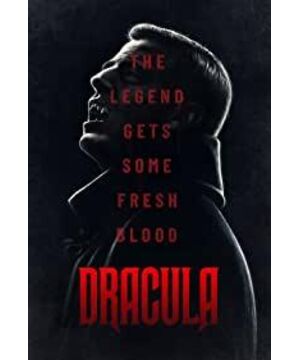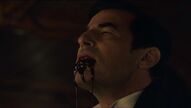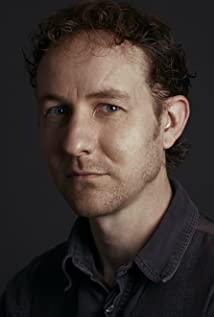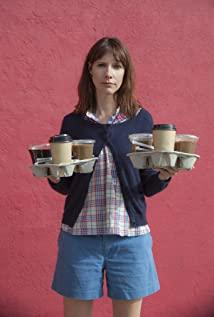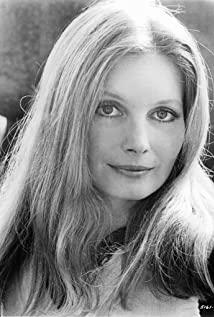Recently, Netflix released news that the second season of the Korean costume zombie drama "Kingdom", which was popular at the beginning of last year, will be broadcast in March.
In fact, in the field of folk thrillers, it can be said that major film and television manufacturers are continuing to bring new surprises to the audience recently.
Whether it is traditional urban strange talk or folk horror culture, it has made great achievements.
Especially on January 1 this year, "Dracula", produced by the BBC and Netflix, once again brought the classic horror image of the vampire Count Dracula to the screen.
The series is divided into three episodes in total, and the content of each episode is 90 minutes. If converted into a 40-minute TV series, it is only six episodes in length, which is a relatively short series.
It is very suitable for passing a boring afternoon or a sleepless night, but if you watch it at night, you may have to make sure that you are brave enough.
A perfect adaptation of the original story, two-thirds of the excellent horror experience
Adapted from Irish writer Abraham Bram Stoker's horror masterpiece "Dracula", this film uses a more ingenious way to tell the story while restoring the legendary image of Dracula.
In the original work, Stoker adopted the perspective of the characters in the book, the first-person narrative method of diary and letters, and told the story of discovering and destroying Dracula through memory.
The first person can make readers feel the same, and the past-style narrative method can help to re-edit the sequence of the story, and can also better create a suspenseful atmosphere.
And this is also the biggest highlight of the first and second episodes of the series.
When Sister Van Helsing meets Huck, who has escaped from Dracula's castle, his condition tells us that this man must have been horribly tortured.
When the fly landed on his eyes, he turned a blind eye, got into his brain in a blink of an eye, and flew out of his mouth.
We know that Mr. Harker in front of him may no longer be called a "person", after all, his appearance and behavior are also stating such a fact.
Beginning with the nun's leading questions, Huck recounts what happened at Dracula's Castle.
Dracula's castle is a taboo place that the locals keep secret.
In order to help "employer" Dracula with some industrial affairs, Huck came to the castle with the agreement documents.
There was a strange place here and there, and the earl who looked like a monster made him feel deeply uncomfortable.
It is not so simple to want to leave. He was required to stay in the castle for a month and not leave.
As time passed, Huck became weaker and weaker, while Dracula changed from a pale old man to an elegant look in his prime.
Later, Huck discovers that Dracula is the secret of the vampire.
But he was forced to write a letter to return the peace to his family so that his family could be spared the same experience.
In the end, Huck, who refused to obey, turned into a living corpse and fled back to his homeland after being sucked blood.
Huck's conversation with the nun initially appears to be fine, until the nun reveals the truth that he has long since become Dracula's puppet through the notes left by Huck when he was in a coma.
It turns out that the scheming Dracula is going to use Huck to become a chess piece, break the defense of the monastery, and start a massacre.
After that, Sister Van Helsing did everything she could to fight against Dracula, but Huck put the Count into the monastery, which led to a tragedy.
In this episode, the story prioritizes all the means to fight vampires, perfecting the vampire setting.
Through the method of memory, Huck's encounters were unfolded layer by layer, and a monastery battle was finally arranged, which pushed the story to a climax.
But after everything was over, we found that the writers had already hinted at the core content of our show.
Why did Dracula appear so powerless before Hucka reached it.
There are so many ways to fight vampires in legends, the nuns know it, and so do the local residents, so Dracula is bound to have a hard time catching prey in his own territory.
After all, vampires who can only act at night will be restrained by many means.
He'll need Outlander Huck to break that balance and bring him back to the top.
In the second episode, Dracula has re-emerged and decided to go to the British Empire to start a new "life".
He deliberately selected the "upper-class people" he had "raised" for a long time as the food for the long sailing trips around him.
A lonely boat on the boundless sea, a secret room environment and a unique murderer like Dracula have started a journey to death.
Unlike the first episode, which focused on what vampires fear, this episode revolves around what vampires want and need, so the story presents a completely different style and inclination.
This made the first two-thirds of this three-episode short play have an excellent effect.
Dracula's projection of reality, arrogance spread like a virus
In the special period affected by the epidemic, there have been a lot of jokes about the source of infection, bats. Among them, I heard someone say: bats have spent a long time to evolve themselves into something completely inconsistent with food, but they still cannot Escape from the clutches of humans.
And vampires who use bats as incarnations are like viruses that can spread everywhere, spreading death in the world.
In fact, there is also a saying at the beginning that the reason why vampires are portrayed as bats is because the ancients discovered that bats and rodents have hidden dangers of spreading diseases.
Those who are bitten and infected continue to spread the disease, which is the origin of vampires to create the death army.
In the play, Count Dracula dressed himself up as a nobleman, and his speech and demeanor were quite stylish.
In reality, bats are very similar, and are eaten as delicacies by people with certain status and financial resources.
Interestingly, Count Dracula in the play also has extremely high requirements in selecting "food", but it is completely reversed with the real characters.
Dracula pursues interesting personalities and believes that such blood is more flavorful, and he even considers himself a master of tasting blood.
People who pursue wild game think that bats are delicious and even have nourishing effects. Eating bats is the best food supplement.
But actually? Count Dracula is just a blood-sucking demon, while game eaters have opened Pandora's box and brought about a global epidemic disaster.
The setting that makes these two seemingly insignificant things more closely related is that Count Dracula in the play always brought a lot of death and suffering in the early days of his birth.
But slowly, he will begin to integrate into people's lives and achieve a delicate balance.
Like viruses, they initially appear to kill their hosts in large numbers, but in the end they pursue a harmonious symbiotic relationship.
Faster spread and longer survival in the host.
Dracula, who can be transformed into darkness, is a symbol of power, immortality, and omnipotent power that humans see on the surface.
So some people will worship it, succumb or lose their minds under the power of Dracula, and choose to stand on the side of darkness.
But at the end of the story, we find that behind Dracula's powerful appearance, hidden is sensitivity to other people's opinions, cowardice to the suffering of the world, and fear in the face of death.
The seemingly terrifying monsters are actually not as resolute and free and easy as mortals in the face of life and death.
Just like some rich and powerful people, who seem to be strong in life, are not necessarily stronger than an ordinary person.
Not perfect, but worth looking forward to
Because of the poor presentation of the third episode, the score of the show was not very good.
But in fact, from the first two episodes, in terms of horror movie standards, this show is undoubtedly excellent.
It completes the novel "Dracula" very well, presented by the transformation from words to pictures.
The third episode is the end of the story, because it is a completely original plot, so it is actually the product of the screenwriter's elaboration of personal thoughts and the construction of a larger worldview to pave the way for the possible second season.
After all, after the timeline came to the modern world, the stories of the episodes have been completely out of the framework of the original work, and naturally, reasonable content originality is indispensable.
In order to create new ideas in the narrative, in fact, in the second episode of the dialogue between the earl and the nun playing chess, there is absolutely no reasonable time to explain it, which is already a big bug.
In the third episode, the story line that came to modern times, in order to meet the needs of the theme, turned Dracula into a "mortal" in another sense.
It is true that Dracula's role becomes more complete when humanity is added.
However, this second artistic processing of the "Dark Lord" Count Dracula in the series obviously cannot make all fans pay the bill.
Although a lot of Dracula's "anti-travelling" stalks were added to the dialogue, for example, Dracula teased the commoners by saying that the convenience and enjoyment brought by ordinary electrical appliances in her home were something that no king in history had ever enjoyed.
Even eating is more convenient for Dracula. Open the social software, swipe right to follow if you like it, and swipe left if you don't like it. It's delivered to your door just like ordering food.
But the overall presentation of modern society is very incomplete, especially the plot of Dracula's lawyer coming to "bail" him away, which is even more bloody.
This lack of rigor alone almost ruined the reputation accumulated in the first two episodes.
And as Dracula became more human, the horror of the first two episodes gradually disappeared.
For pure horror film lovers, this film is already like a chicken rib at this time, and it is a pity to abandon it.
But in fact, if you taste it carefully, whether it is Dracula's love for Lucy's blood, or the "pleasure" shown by his descendants when he meets Van Helsing again, it is a good foundation for the ending.
When Van Helsing found Dracula's last weakness, facing the shadow of the sun and the cross, Dracula calmly accepted the coming of death.
While bringing the story to an end, it also left a little suspense. What happened to Dracula and Van Helsing?
At the same time, although there is no news of renewal for the time being.
But whether it's Dracula's minions or the foreshadowing of the entire Huck Foundation, it brings endless possibilities for the sequel to the series.
It is thought provoking how the story of Count Dracula's arrival in the 21st century would have developed if he had not died.
View more about Dracula reviews


